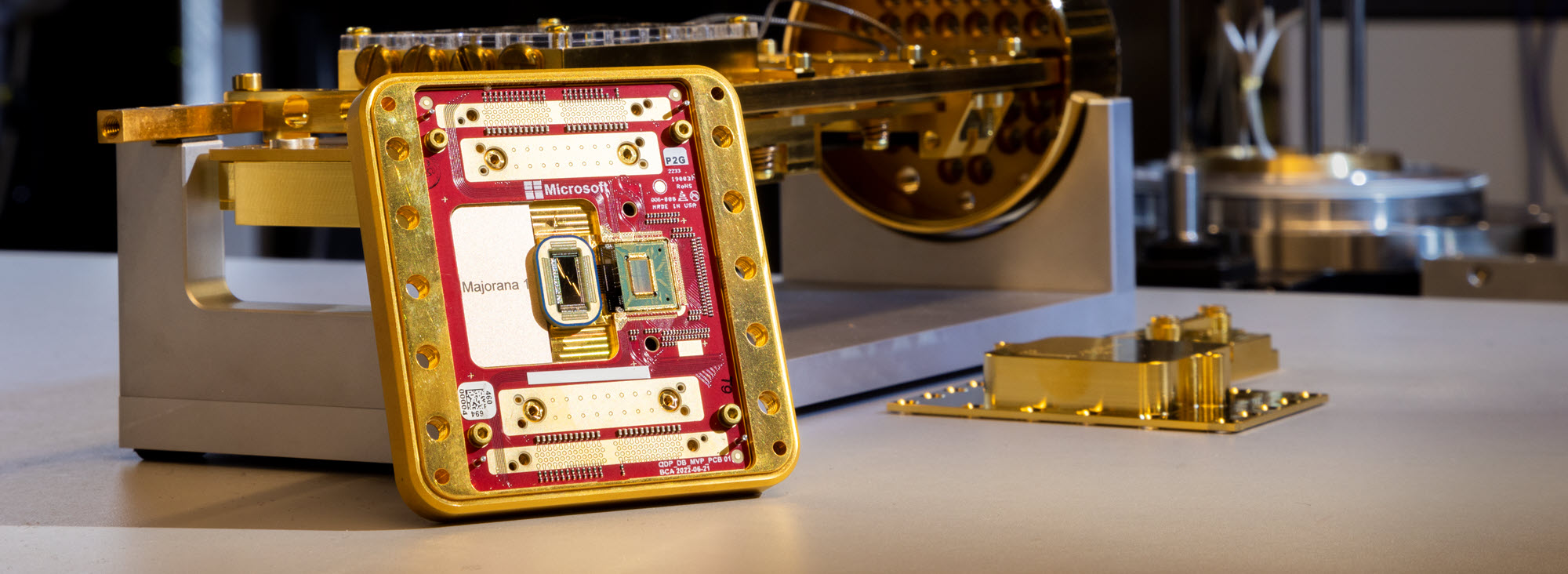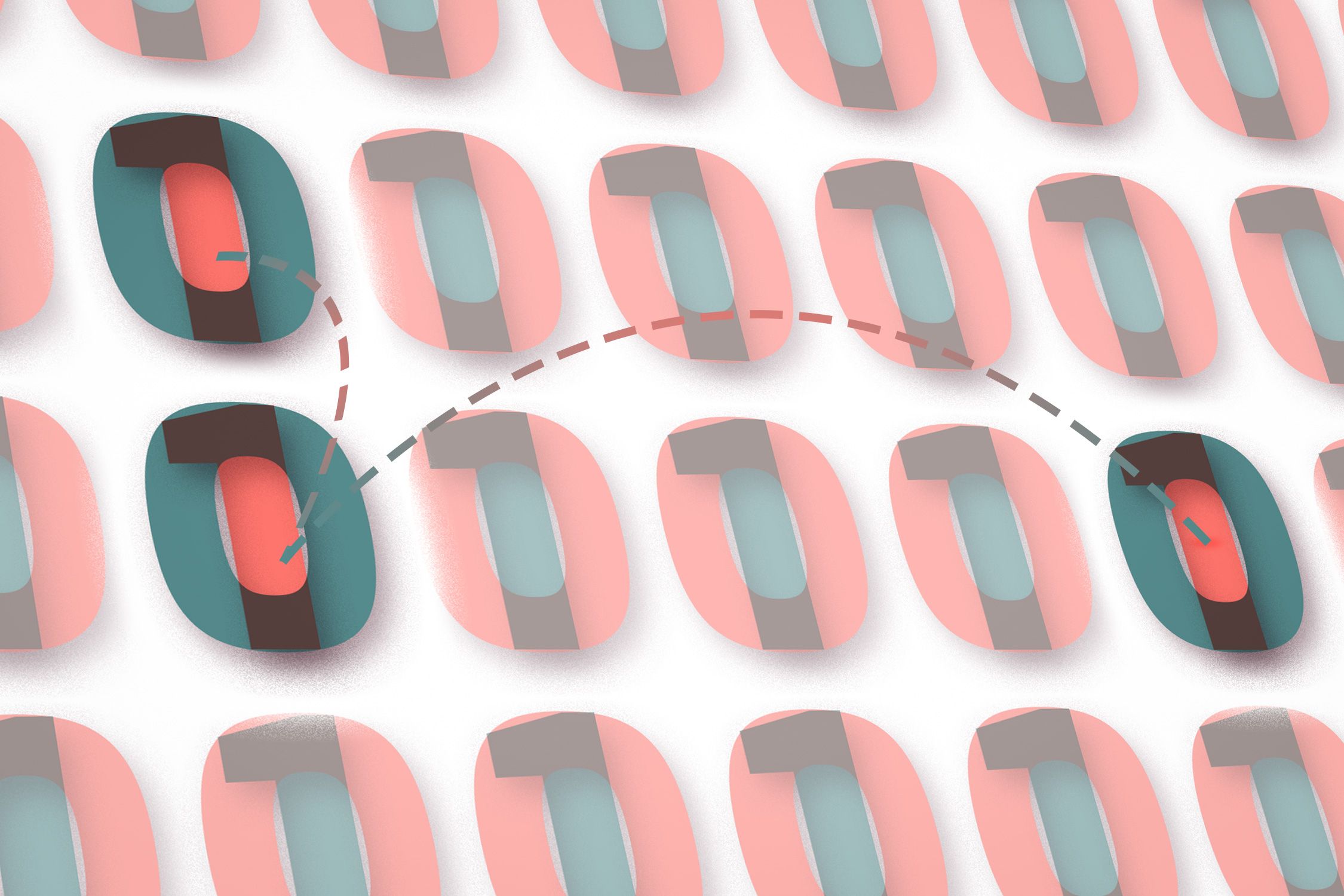Introduction: Beyond Bits – The Revolution of Quantum Computing
The future of computing isn't shrinking transistors and speeding up clocks. It's about unlocking the mind-bending potential of quantum mechanics. And at the forefront of that revolution is Microsoft, with its unique approach to building a quantum computer. While other companies are betting on superconducting qubits, Microsoft is placing its bet on a more resilient, fault-tolerant approach: the topological qubit.
The latest buzz is about a key component of this vision: the Majorana-1 chip announced on . It's not your average chip; it's a significant step towards realizing the dream of stable and scalable quantum computing.
Unlocking the Quantum Challenge: Error Correction is the Key
Before we dive into how the Majorana-1 chip operates, let's first get a grasp on the biggest hurdle to building a useful quantum computer: error correction.
Qubits, or quantum bits, are very delicate. They can be easily disrupted by environmental noise such as vibrations, temperature variations, and electromagnetic interference, leading to loss of quantum information and introducing errors into computations.
Most quantum computers now come with intricate, resource-consuming error correction systems that consume an unacceptable number of available qubits; this caps the size and sophistication of quantum programs that can be executed on them.
Microsoft's Topological Qubit Solution: The Way to Stability
Microsoft is approaching this challenge head-on by working on topological qubits. While other forms of qubits have some degree of fragility, topological qubits are proposed to be inherently more stable and resistant to noise.
The trick is to encode quantum information in the "topology" or form of the qubit, not in its particular state. Imagine braiding hair strands: the braid is more robust against unintended alterations than the strands themselves.
This method can dramatically minimize the requirement for error correction, leading to larger, more powerful, and more dependable quantum computers.
The Majorana-1 Chip: The Foundation of Topological Qubits
So what's the role of the Majorana-1 chip? The Majorana-1 chip will be used to produce and control Majorana zero modes, exotic particles that in theory are known to occur in certain materials. These Majorana zero modes are the foundation of topological qubits.
What are Majorana Zero Modes? Majorana zero modes are really quasiparticles that happen to be antiparticles unto themselves. They're predicted at the ends of specifically engineered nanowires that consist of superconducting material.
How the Majorana-1 Chip Functions: The Majorana-1 chip is an advanced architecture using precisely controlled electric fields to create, manipulate, and detect Majorana zero modes.
- Main Features and Functionality:
- It's produced using advanced semiconductor fabrication techniques.
- It contains superconducting material to enable Majorana zero mode formation.
- It contains an array of electrodes that enable control over the quantum states.
- It is made to function at very low temperatures (near absolute zero).
- Microsoft's Milestones and Timelines for the Majorana Chip
| Milestone | Estimated Timeframe |
|---|---|
| Theoretical Basis | Early 2000s |
| Material Science | 2010s-Present |
| Majorana-1 Chip Fabrication | 2020-Present |
| Demonstration of Qubit Control | 2023-Present |
| Fault-Tolerant Qubit | 2025+ |
Significance of the Majorana-1 Chip
The Majorana-1 chip is a significant milestone in Microsoft's quest for a fault-tolerant quantum computer.
Proof of Concept: It demonstrates that it is possible to create and control Majorana zero modes, which are essential to build topological qubits.
Scalability Potential: The chip is scalable in nature, i.e., it can be replicated and interconnected to create larger quantum systems.
- Roadmap to Fault Tolerance: It provides a foundation for building more resilient and stable quantum computers that can solve complex issues.
- Comparison Table: Microsoft's Topological Qubit vs. Superconducting Qubits
| Feature | Microsoft (Topological Qubits) | Superconducting Qubits (e.g., Google, IBM) |
|---|---|---|
| Qubit Type | Majorana Zero Modes | Transmons |
| Error Sensitivity | Potentially lower | Higher |
| Error Correction Requirements | Perhaps less complicated | More complicated |
| Scalability | High Potential | Good |
| Maturity | Early Stage | More Mature |
| Key Benefit | Inherent Robustness, Fault Tolerance | Accelerated Development Cycle |
The Future of Quantum Computing with Microsoft: A Look Ahead
Microsoft's emphasis on topological qubits is a long-term investment. While it may be several years before one can build a working topological quantum computer, the potential payoff is huge.
Extended Research and Development: Expect extended advances in materials science, chip design, and quantum control techniques.
Focus on Scalability: The goal is to increase the number of qubits on a single chip and keep them stable and in control.
- Collaboration and Partnerships: Microsoft is likely to build on existing relationships with researchers and businesses to explore real-world applications for topological quantum computing.
- What This Means for Developers and Businesses
Though topological quantum computers have not yet arrived, Microsoft's Azure Quantum platform enables developers and businesses to experiment with quantum hardware and software capabilities. As Microsoft continues to develop on its topological qubit tech, these tools will be that much more capable and relevant.
Conclusion: A New Era of Computing is Dawning
The Majorana-1 chip is an expression of Microsoft's vision in using quantum computing innovatively. Microsoft, by exploring topological qubits, wants to usher in a future when quantum computers will not only be powerful but fault-tolerant and dependable too. As challenging as the journey is going to be, it's shaping up for an even brighter computer-driven future to propel industries to move and try solutions for a chain of tough global challenges. Keep Microsoft quantum steps ahead – tomorrow's not far away enough to discuss anything as miraculous as this once again.



